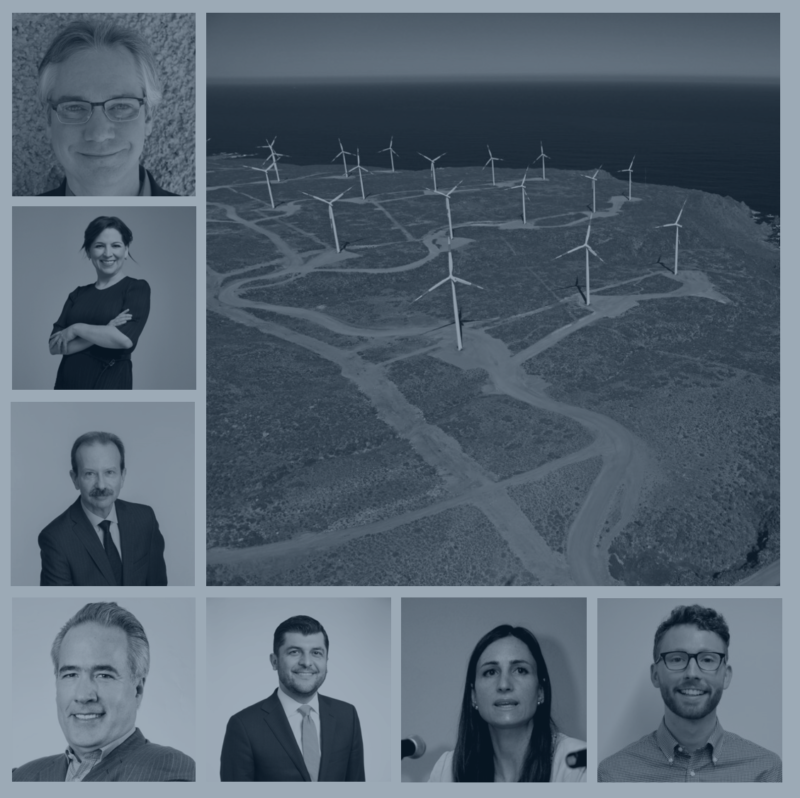Bolivia & the Global Fight Against Climate Change
In the past year, the Bolivian government has emerged as an outspoken critic of climate change policies.
As the energy transition gathers pace worldwide and Latin American countries raise their emissions reduction targets ahead of this year’s Conference of the Parties in Glasgow, the 21st century will be the “century of electrification,” according to one panelist at an Inter-American Dialogue webinar on April 29. The shift to renewable energy will demand that sectors that are currently non-electric, from transport to heating to heavy industry, be electrified or employ other innovative solutions to decarbonize. Private companies ranging from utilities to asset managers to energy companies traditionally focused on oil and gas are revising their business models to meet this demand. The United States has also reemerged as a partner on climate action in the region. This webinar explored the current and potential role of the private sector in Latin America’s energy transition and how the United States can provide support.
During a keynote session, Andrew Light, acting assistant secretary for International Affairs at the US Department of Energy (DOE), described how in the wake of Biden’s April summit, which sought to raise global climate ambitions, the United States will not only drive its own energy transition, but also share knowledge and financing with countries in Latin America. Light highlighted the region’s abundance of clean energy resources, and their high potential returns on investment, as opportunities. Light added that DOE is already collaborating with Brazil, Chile, Mexico, and other countries in the region, including on enhancing the private sector’s role in clean energy deployment, and stressed that these partnerships go beyond finding markets for US exports to focus on co-development of solutions. Light specifically cited research on grid-scale energy storage to enable the use of renewable energy as baseload power and partnerships between countries including Brazil and Chile and DOE's National Labs. He also referred to initiatives focused on reducing dependence on the fossil fuel industry and increasing the resilience of vulnerable small islands by expanding renewable energy and underscored the importance of ensuring that alternatives to fossil fuels are cost-effective.
On the panel, company representatives said that climate action is driving major revisions of their business models in the region. Angélica Ruiz, senior vice president for Latin America at BP, discussed how climate action is redefining BP from an international oil company to an integrated energy company. She highlighted a shift of investment from oil and gas to electrification, a slashing of oil and gas production to focus on only the most resilient and lowest-emissions oil and gas reserves, and partnerships with cities and customers in high-emissions sectors like steel and heavy transport on deploying new clean technologies and digitalization.
Jean-Michel Lavergne, president and CEO of Total E&P Americas, described the twin challenges of tackling emissions while also reducing energy poverty in Latin America. He cited small-scale solar projects for isolated villages in Guyana among Total’s efforts to address this issue. Underscoring the importance of electrification in the energy transition, he described the 21st century as the “century of electricity.” Lavergne also emphasized the company’s focus on natural gas, plans for a regional research and development hub in Rio de Janeiro, and solar and wind farms to power operations in Argentina.
Julián Nebreda, president for South America at The AES Corporation, also provided examples of major changes the utility company is making across the region. In Chile, AES is pivoting from coal generation to renewable energy and deploying innovative new projects like the company’s virtual reservoir (a run-of-river hydro plant with battery storage). In Central America, AES is replacing liquid fuels with natural gas. In the future, Nebreda also mentioned producing hydrogen with renewable energy as a potential way to green industries like cement production that are difficult to electrify.
Mario Fernández, head of Latin American Energy Principal Investments at Macquarie Capital, explained that the mandates of long-term institutional investors to shift to greener investments have increased the company’s focus on assets and platforms related to facilitating the energy transition. In Latin America, he cited the imperatives of increasing transmission capacity and reducing dependence on oil, coal, and hydroelectricity. He also echoed the potential of natural gas as a bridge fuel.
The transition to a zero-emissions economy is complex, and parts of it depend on technologies that have not yet been invented or perfected, such as hydrogen. Private capital and technological prowess will be indispensable in these efforts, meaning governments should seek partnership with the private sector on shared goals related to the transformation of the energy sector, as DOE and some of its counterparts in the region are already doing.
In the past year, the Bolivian government has emerged as an outspoken critic of climate change policies.
As global temperatures continue to rise with the global community stalled on any way to stop them, countries must prepare to adapt to increasingly volatile environmental conditions.
Despite an increased presence in the global market, Brazil’s new economic policy shows sign of protectionism and defense of traditional industries.
 Main Photo: Antofagasta Minerals / Flickr / CC BY-NC-ND 2.0
Main Photo: Antofagasta Minerals / Flickr / CC BY-NC-ND 2.0